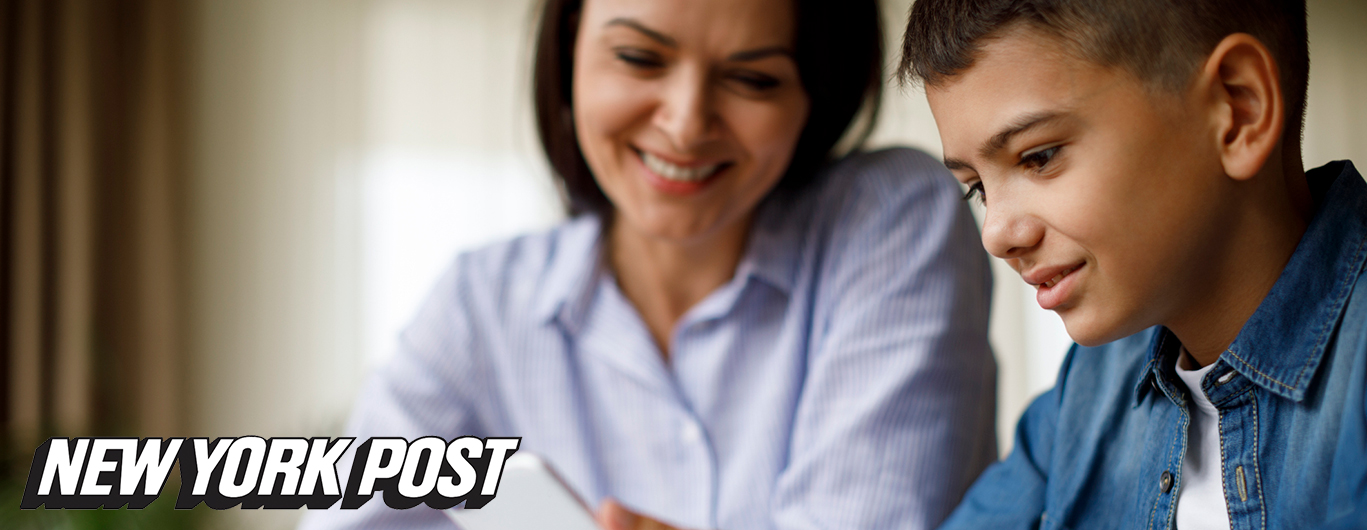When Amanda Craig’s 14-year-old son, Owen, started high school in September, she felt just as much angst as her freshman did.
“He needed more rides, a little more assistance navigating the high school system, organizing his different classes. The homework is more robust, and his schedule goes later,” Craig, 48 and a Darien, Conn.-based family therapist, told The Post.
“I feel like I have to be more alert to him than my second grader who is in one class all day,” said the mom of three.
So she took what psychologists and parenting experts are calling “teen-ternity” leave — parents, especially moms, cutting back on work to be more emotionally and physically present for their teens as they navigate college prep, peer pressure and hormones.
In Craig’s case, that means ending her work day at 3 p.m. to be home for her teen and be present at family dinners and his soccer and hockey games.
And while Craig said she wants to be a mentor to her son, she admits it’s also about knowing exactly what’s going on in his life — and stopping him from getting into trouble.
“He’s in 9th grade, but 10th and 11th graders, they want to have sex. They want to smoke. They want to drink. And if there’s a home free of an adult, that’s a good place to do those things,” said Craig, the author of “Who Are You & What Have You Done With My Kid?”
More than one in five parents and caregivers (21%) have opted to quit their jobs entirely in the past year, or plan to quit in the New Year, to better manage their kid’s behavioral health needs, according to data from Brightline’s most recent Behavioral Health Needs Survey.
Psychologist Danielle Roeske, vice president of residential services for Newport Healthcare, told The Post more parents are playing defense for the emotional needs of teens, particularly after the pandemic.
“As anxiety increases, parents are feeling compelled to be more present for their young people. They feel disconnected,” Roeske told The Post,
Greenwich-based Elizabeth Wells, a freelance writer/editor and mom of three — including a 13-year-old and a 16-year-old — decided to keep working from home to keep a closer eye on her offspring.
“The big kids need me just as much if not more than my elementary-aged child. Lately it’s been remarkable how much they want my attention,” Wells, 48, said.
“Every feeling is magnified. They think they’re the center stage and everyone’s looking at them. There’s friend drama, they’re thinking about the fact that they don’t have the Lululemon pants,” Wells said.
The decision definitely runs the risk of reinforcing an over-involved, ‘helicopter’ style of parenting, which, as we know, can have a concerning impact on the healthy development of teens.
Danielle Roeske, PsyD
And while some kids might hide their lives from parents’ prying eyes, Wells said being there all the time has been a boon for communication with her kids.
“You pick them up [from school] and they just let it out. My older son said, ‘This boy bought a bottle of liquor to school and asked me to split it with him.’ He’s 16 — a sophomore in high school,” Wells added. “They’ll say, ‘So-and-so went off and had this experience with drugs and alcohol’ … they’re in need of an adult figure who can tell them right from wrong.”
Research suggests that teenage years are becoming increasingly turbulent. A study published in the journal “Biological Psychiatry: Global Open Science” last year compared scans of teens’ brains before the pandemic and after the first years, found teen brains aged three years in about 10 months during the pandemic resulting in higher levels of anxiety and depression.
But Roeske cautions that, without boundaries, parents’ “teen-ternity” can do more harm than good.
“The decision definitely runs the risk of reinforcing an over-involved, ‘helicopter’ style of parenting, which, as we know, can have a concerning impact on the healthy development of teens,” Roeske said.
“It raises the question of how supportive, really, a parent’s decision to take a ‘teen-ternity’ [leave] — and subsequently increase involvement in their teen’s daily lives — is … and if, in fact, it is not more of a detriment.”
Craig believes she’s found the right balance.
“I didn’t take my time back [from my career] to hover,” she said. “I’m not micromanaging my son. I’m not doing his work for him or making him do homework all night. That’s not what it’s about.”
Reprinted from The New York Post.
